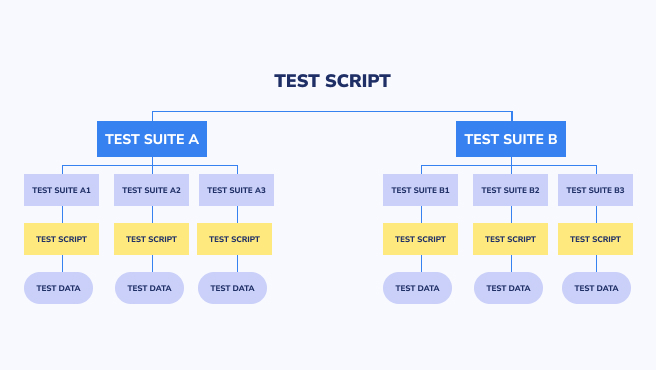<Automation Testing of E-commerce Website: What It Is and How to Implement It>
It’s no longer news that e-commerce has become a vital part of the retail industry and is here to stay. In 2020, online buyers surpassed two billion, and online retail sales revenue exceeded 4.2 trillion US dollars globally. In addition, customers spent more than $870 billion on online purchases in the same year.
Meanwhile, industry forecasts predict that e-commerce will account for more than $7 trillion in sales by 2025. As an online retailer, now is the perfect time to leverage e-commerce to your full advantage. Since websites are an integral part of e-commerce, you must ensure that yours functions optimally to meet increasing demands/needs.
This means constantly improving your website to enhance customer experience, especially in terms of load time and navigation. You may also wish to focus on aesthetics, security, imagery, descriptions, mobile responsiveness, etc.
This is where e-commerce website automated testing comes in. Automated testing of e-shops websites ensures that changes to the site are quality enough to drive the desired results. Also, mechanical testing helps fix errors that may arise as you attempt to improve your website.
In this article, you’ll learn more about the benefits of test automation services for the retail industry. Let’s get started.
What Is the Automation Testing of E-commerce Websites?
There are many reasons why your ecommerce store needs a website. First, it’s cost-effective, increases customer reach, gives you the flexibility to run your business anywhere, etc. Secondly, it’s a convenient online platform that helps to strengthen your brand and offer better marketing opportunities.
However, more than just having an ecommerce web application, the aim is to make your brand an online industry leader. This means that you’ll need to continuously improve your website to make them meet the industry’s changing standards.
For example, you may have to create new features, offer new products and services, or improve existing ones. You’ll also need to make your website more user-friendly to sustain customer loyalty and drive sales.
Standard website adjustments include altering page layouts, color schemes, fonts, CTAs, improving speed, etc. While these are essential changes, enhancing your website has its challenges. For example, updating your website can increase the risk of bugs that make your efforts counterproductive.
To eliminate such problems, you need a system that tests your updates to ensure they’re working perfectly. Not only must the testing system ensure the website’s functionality and performance, but it must do so quickly. That’s what the automated QA testing software for e-commerce does.
Test cases for e-commerce websites help prevent errors by providing developers with the necessary information to find bugs and fix them. This way, e-commerce automation test cases ensure that the end-users don’t encounter difficulties using your website due to the changes.
Therefore, e-commerce website automation tests are convenient and effective. If your e-commerce website is built with Shopify, Shopify automated testing should interest you.

How Does the E-commerce Industry Implement Test Automation?
These are the processes for incorporating automated tests in e-commerce websites:
Product Analysis
This is the first step to implementing test automation in e-commerce. Before improving products or services on your website, you must study and understand how such updates enhance user engagement/experience. Product analysis seeks to achieve this by providing the developer with information on how users engage with the products.
It also ensures that you provide the perfect products for your target audience. It serves as the yardstick to determine whether your product improvements suit your clients’ needs. That is, automated e-commerce testing checks how well the upgrades meet users’ needs as indicated by the product analytics.
Automation Tools Selection
Like every handyperson needs tools, a QA automation engineer needs automation devices for conducting automation testing of the e-commerce website. These tools are what equip them to test the quality of the website updates. So, QA professionals must select the right ones for the best results.
The perfect automation tools have the necessary features to make the automation process easier and more efficient. Common factors to consider when choosing the correct automation tools include skilled resources, budget, testing needs, stability, etc.
Wix automation tests tool is one of the most commonly used.
Framework Analysis
Framework analysis helps testers to carry out automation tests in an organized manner. It evaluates the best practices and rules the testing process must follow to achieve the desired outcome. The Magento automation testing framework is one of the most common end-to-end functional testings.
QA specialists love automated testing for Magento framework for its flexibility and scalability.

Design Framework
The design framework is a structure that QA experts work with when solving problems. It organizes and outlines the ideas for solving the problem so that QA engineers can solve it efficiently. In addition, the design framework regulates solutions and offers a flexible system for automation professionals to repeat processes and gather insights.
Environment Configuration
Developers need to configure the environment to deploy applications successfully. This involves identifying and configuring environment variables for seamless progression from development to quality assurance and production. Also, QA professionals must ensure that the codes run efficiently in the production environment.
Test Data Creation
Test script development is one of the standard testing practices in e-commerce platforms. It involves creating a line-by-line description of the required data and action for software testing.

Execute Test Script
Test script execution is the process of implementing test scripts in the QA environment. It also involves comparing the results with the expected outcome. Executing test scripts help the QA team to assess how ready a software product is for market entry.
Result Analysis
Remember that the purpose of conducting automation testing of the e-commerce website is to get feedback. When QA engineers get the feedback from their tests, they use them to measure if they meet the product requirements.
Then they conduct a result analysis to check if there are any more adjustments to make. The QA team will also give you a detailed test report that documents the analytic process from start to finish.
Support and Maintenance
Quality assurance experts do more than fix bugs. They also provide you with all the support you need to ensure your website remains optionally functional.
Boost your organization’s performance with QAs
Get in touchDifferent Types of E-commerce Automation Testing
Now you understand the process of automation testing of an e-commerce website. Let’s take a look at the crucial types of testing for e-commerce systems:
Web UI Testing (Graphic User Interface Testing)
Graphics User Interface (GUI) refers to visual components an end-user encounters when visiting your e-commerce website. This determines how interested they will be in engaging with your site. As such, it’s essential to make an excellent first impression by ensuring that automated testing focuses on this area.
To this end, quality assurance professionals influence user behavior by ensuring seamless scrolling and perfectly functional layouts/features, etc. Also, they test the GUI to ensure that it’s attractive, easy to use, and provides different options for clients to try quickly.

Performance Testing
Performance testing is one of the standard testing practices 0n e-commerce platforms. Its primary goal is to assess the e-commerce website’s loading speed. It’s essential to test how fast a website loads because it drastically affects user experience and engagement. For example, data that 39% of users will exit a website if images take too long to load.
Besides ensuring fast loading speed, QA experts fix bugs from updates that may slow the website down. Automated testing ensures that the e-commerce website retains top-notch functionality even on days with high traffic influx.
Mobile Application Testing
The number of mobile phone users keeps growing. According to a report, online buyers prefer mobile applications due to their convenience and accessibility. Also, 74% of visitors will return to mobile-friendly sites only.
As such, QA engineers must also pay attention to how the ecommerce website functions on a handheld mobile device.
Mobile application testing examines how functional or useable your e-commerce platform is on android or iOS devices before release. The aim is to ensure that your online retail shops give your users a seamless user experience.

Functionality Testing
Functionality testing assesses the performance of new functionalities on your website. These include pop-up windows, relevant promo codes, new banners, buttons, etc. This e-commerce automation testing ensures that the new features don’t affect the website’s overall functionality.
Automation ensures that QA engineers carry out this task conveniently and effectively. For example, it’s essential to repeat tests to verify their operationality when testing functionality. While this will be difficult with manual testing, automated testing conveniently ensures quality/accurate results.
API Testing
API stands for Application Program Interface. API testing examines your e-commerce website programming interfaces to determine their functionality, reliability, and performance. Since API is highly vulnerable, the testing process includes security testing, and experts typically find many bugs at this stage.
QA engineers begin API testing by verifying its top-level performance. Next, they test how well it interacts with other systems. Finally, API testing assesses product information, catalog, website search, and shopping carts vulnerabilities.
Learn about the latest trends in QA and Software testing
Read moreWhy You Need Automation Testing Services for Your E-commerce Business
There are many reasons you should invest in automated test solutions for your e-commerce platform. They include:
Quality and UX Audit
One of the essential benefits of automated website services is ensuring that your site is quality enough for engagement. It also conducts a UX audit (or usability audit) that identifies loopholes that may repel your target audience.
This process guarantees a positive user experience and maintains your position as the industry leader in a competitive market. Also, automated testing helps to improve your brand reputation.

Performance Evaluation
With automated testing, your end-users wouldn’t have to deal with slow-loading pages. This is because QA professionals use relevant automation tools to determine what makes your website lag and fix them.
Code Reviews
One reason to automate e-commerce testing is how conveniently it reviews codes. Automated testing quickly accesses codes to detect bugs that affect your website’s performance. It’s an essential process for increasing code quality while simplifying software development.
Improved Functionality
Automated testing improves the functionality of your website. Its core function is to ensure that potential clients can engage with your e-commerce website without any difficulty.
Security and Compliance Tests
The security of your website and data is of paramount importance to quality assurance experts. Automation testing is one way they check for vulnerabilities, fix them, and ensure that they conform to relevant industry standards.
Eliminate Risks
Generally, your website will change to accommodate growing industry needs and trends. Unfortunately, these changes usually come with flaws that can result in huge losses in your business. To avoid this, QA professionals use automation test cases for e-commerce website to find loopholes. This enables them to eliminate risks in advance.

Increased Conversion Rates
Automated testing of your e-commerce website helps you to enhance the conversion rate. It ensures a positive user experience that makes potential clients happy to engage with your website. Since customers love convenience and speed, a top-functional website will keep them coming back for more purchases.
Faster Time-to-Market Rates
Automated testing of your e-commerce website helps you to enhance the conversion rate. It ensures a positive user experience that makes potential clients happy to engage with your website. Since customers love convenience and speed, a top-functional website will keep them coming back for more purchases.
Reduced Costs
Automated testing services for the retail industry are highly cost-effective. First, it helps you generate high income through improved conversion rates. Automation test cases for online shopping website also help to reduce losses from poor-performing websites. Finally, the best QA experts are pretty affordable too.
Do You Need Professional Quality Assurance (QA) Services?
Contact UsAs an online retailer, staying ahead of the competition requires constant improvements on your website to meet changing industry trends. However, merely updating your website is not enough to ensure customer engagement. The process of improving your website puts it at risk of errors that could worsen the user experience.
Therefore, your platform needs e-commerce website testing test cases to find vulnerabilities and bugs. Unfortunately, this can be a tedious process. But the good news is that automating the testing of your e-commerce website makes this process easy and fast. With help from our experienced QA engineers, your online business now has all it needs to reach its full potential. Contact us today.



